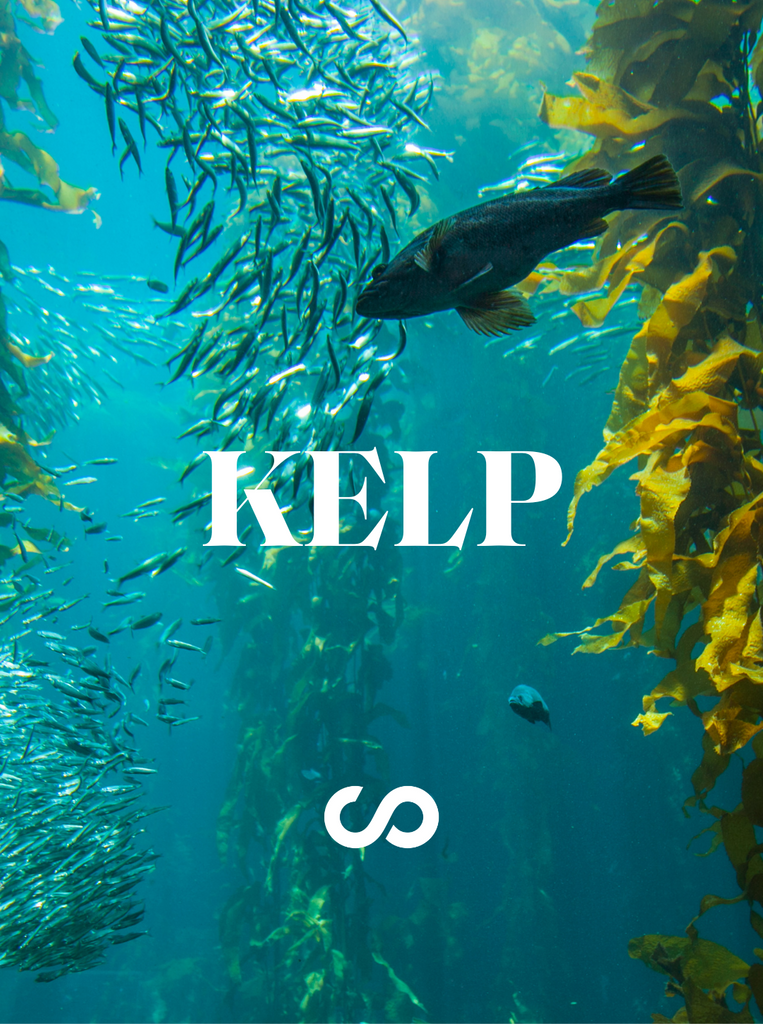No Products in the Cart

🌿 The Superfood from the Sea: A Nutritious Delight and Environmental Savior 🌊
Eat. More. Seaweed.
We know that this unassuming marine plant, an up and coming entrant into Western cuisine, holds incredible potential as a delicious and eco-friendly food source.
Not only is seaweed packed with essential nutrients, but its cultivation and consumption plays a significant role in mitigating environmental challenges.
Let's dive into the reasons why Kelp - the main type of seaweed we use in our snacks and seasonings - is both good to eat and good for the environment.
🥗 Nutritional Superstar 🌿
Kelp boasts an impressive nutritional profile, making it a valuable addition to any diet. It is rich in vitamins such as vitamin C, vitamin K, and B vitamins, as well as minerals like iodine, calcium, iron, and magnesium. Moreover, seaweed is an excellent source of dietary fiber, which aids digestion and promotes a healthy gut. By including seaweed in your meals, you can enhance the nutritional content of your diet and support overall well-being.
1️⃣ Rich in Essential Vitamins and Minerals: Kelp boasts an impressive array of essential vitamins and minerals, making it a powerhouse of nutrients. It is an abundant source of iodine, a mineral vital for a healthy thyroid function and metabolism regulation. Additionally, seaweed provides significant amounts of vitamin K, folate, magnesium, calcium, iron, and zinc, all of which play crucial roles in maintaining overall well-being.
2️⃣ Loaded with Antioxidants: Antioxidants are superheroes in the fight against free radicals, unstable molecules that can damage cells and contribute to aging and disease. Seaweed, particularly brown varieties like kelp and wakame, contains various antioxidants such as fucoxanthin and phlorotannins. These potent compounds help neutralize free radicals, reducing oxidative stress and promoting cellular health.
3️⃣ Abundant Fiber Content: Fiber is an essential component of a balanced diet, aiding digestion, regulating blood sugar levels, and supporting heart health. Seaweed contains soluble and insoluble fibers, both of which contribute to a healthy digestive system and help prevent constipation. Incorporating seaweed into your meals can be a great way to increase your fiber intake and improve overall gut health. The soluble fiber found in seaweed, known as alginate, forms a gel-like substance in the gut, promoting feelings of fullness and potentially aiding weight management. It is low in calories and fat, making it a nutritious and satisfying option for those looking to maintain a healthy weight. Furthermore, some studies suggest that certain compounds found in seaweed can inhibit the enzymes involved in fat digestion, potentially reducing the absorption of dietary fat.
4️⃣ Omega-3 Fatty Acids: Kelp is one of the few plant-based sources of omega-3 fatty acids, typically associated with fish and seafood. Omega-3 fatty acids, particularly eicosapentaenoic acid (EPA) and docosahexaenoic acid (DHA), are known for the vital role they play in brain health, reducing inflammation, and improving heart health. Incorporating seaweed into your diet can be especially beneficial for individuals following a vegetarian or vegan lifestyle.
5️⃣ Potential Anti-Cancer Properties: Emerging research suggests that certain compounds found in seaweed, such as fucoidan and laminarin, possess anti-cancer properties. These compounds have demonstrated promising effects in laboratory studies, including inhibiting the growth of cancer cells and reducing the risk of certain cancers. However, more extensive research is needed to fully understand their potential benefits in humans.
Let's break it down 100g of raw Kelp delivers:
55 % of the daily value (DV) of vitamin K1
45 % of the DV of folate
29 % of the DV magnesium
16 % of the DV of iron
13 % of the DV of vitamin A
13 % of the DV of pantothenic acid
13 % of the DV of calcium
Beyond nutrition, Kelp's environmental benefits are vast and multifaceted, encompassing climate change mitigation, ocean restoration, habitat protection, sustainable food production, renewable energy, and waste management. Embracing and supporting seaweed-related initiatives can propel us toward a more sustainable and resilient future.
As we continue to explore and harness the potential of these remarkable marine plants, let us recognize and appreciate the vital role they play in safeguarding our planet. 🌍🌱